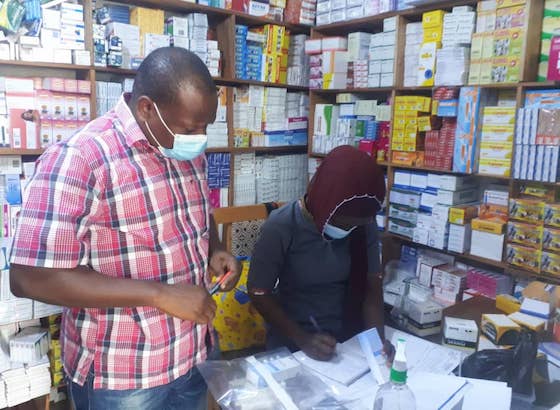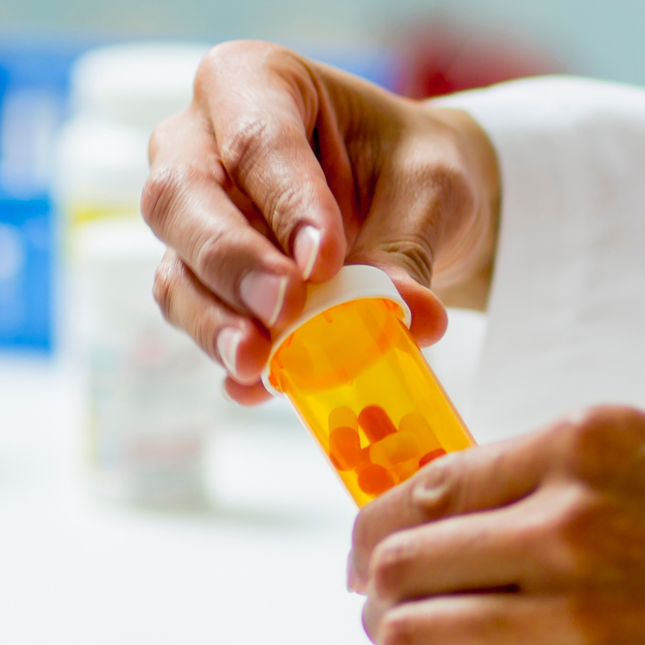To better optimize its resources, the Food and Drug Authority of Ghana (FDA Ghana) has implemented risk-based post-marketing surveillance (RB-PMS) to gauge the quality of medicines and medical products circulating in the country. RB-PMS is an approach to market surveillance, an important regulatory practice that monitors the quality and safety of a registered medical product after it receives market authorization.
The FDA Ghana regularly conducts post-marketing surveillance (PMS), but standard PMS is expensive, complex, and time-consuming. The RB-PMS approach, in contrast, relies on a streamlined strategy for sampling and testing that could yield results for the sampled products at a lower cost than would be required of sampling without the tool. In essence, RB-PMS channels precious resources toward medicines and locations that present the highest risks to patients.
Standard post-marketing surveillance is expensive, complex, and time-consuming. By contrast, a risk-based approach relies on a streamlined strategy for sampling and testing that could yield results for the sampled products at a lower cost.
As one of the few regulatory authorities in Africa to achieve the World Health Organization’s (WHO) Maturity Level 3, the FDA Ghana implemented RB-PMS with support from the U.S. Agency for International Development (USAID) through its Promoting the Quality of Medicines Plus (PQM+) program. For its first RB-PMS exercise, which took place in late 2021, the FDA Ghana established a technical working group (TWG), comprising representatives from: the FDA; the national control programs on malaria, tuberculosis, and HIV/AIDS; the Expanded Program on Immunization; the National Health Insurance Agency; the Pharmacy Council; and the Ghana Health Service. The TWG oversees all RB-PMS activities in the country and identified five medicines for quality testing, including three antimalarials and two maternal health medicines, based on their risk priority for the first round of RB-PMS. The FDA collected 378 samples (201 antimalarials and 177 maternal health products) from 378 randomly selected facilities.
Quality testing of medicines to treat malaria and maternal health
In March, the FDA Ghana disseminated the results from the first RB-PMS exercise. “The dissemination of the report on the 2021 Risk-Based Post-Marketing Surveillance on antimalarials and maternal, neonatal, and child health products (MNCH) is an indication of our collective commitment to ensure that quality, safe, and efficacious medical products are available to the Ghanaian public. That is at the core of our mandate at the FDA,” Akua Amartey, Deputy Chief Executive Officer of FDA Ghana in charge of technical operations, said at the dissemination event.
 In Ghana, malaria is a leading cause of disease and death, especially among children and pregnant women. The Ghana FDA found that only one of the 176 registered antimalarial samples failed testing. This means more than 99 percent of the samples met international standards for quality.
In Ghana, malaria is a leading cause of disease and death, especially among children and pregnant women. The Ghana FDA found that only one of the 176 registered antimalarial samples failed testing. This means more than 99 percent of the samples met international standards for quality.
Postpartum hemorrhage is the most common cause of maternal death in Ghana. WHO recommends oxytocin as a first-line treatment. Of the 177 maternal health product samples collected, 84 of them were oxytocin injections. These injection samples underwent quality testing and 53 or 69.6 percent met international standards for quality.
Results help to inform regulatory action
The FDA Ghana is now reconsidering how health facilities should store oxytocin. The manufacturers’ official guidance states that the drug can be safely stored at room temperature, but the medicine is more likely to retain its quality and effectiveness when refrigerated. PQM+ worked with Ghana FDA to draft a policy brief addressing this issue for the Ministry of Health to review. As a result, the Ministry of Health recently issued a letter to FDA Ghana to instruct all health facilities to store oxytocin at a temperature between 2 and 8 degrees Celsius. In addition, as part of its regulatory oversight, the Ghana FDA has seized unregistered or failed medicines and levied fines and administrative charges against facilities that were selling unregistered products.
“USAID has worked with the Ghana FDA since 2009 to strengthen its internal processes and regulatory systems, including its ability to ensure quality control of imported medicines as well as good manufacturing practices of locally produced medicines and finally to conduct post-marketing surveillance once the medicines are available for consumption. This great partnership, and the hard work put in by the FDA, has improved Ghana’s regulatory and local manufacturing capacity and saved lives,” said Zohra Balsara, USAID/Ghana Health Population and Nutrition Office Director, at the dissemination event.
About PQM+
Funded by USAID and implemented by the U.S. Pharmacopeial Convention and its consortium of partners, the PQM+ program is designed to sustainably strengthen medical product quality assurance systems by providing technical assistance to manufacturers of priority health products and support to medicines regulatory authorities to improve product registration, inspection, and post-marketing surveillance for product quality.


